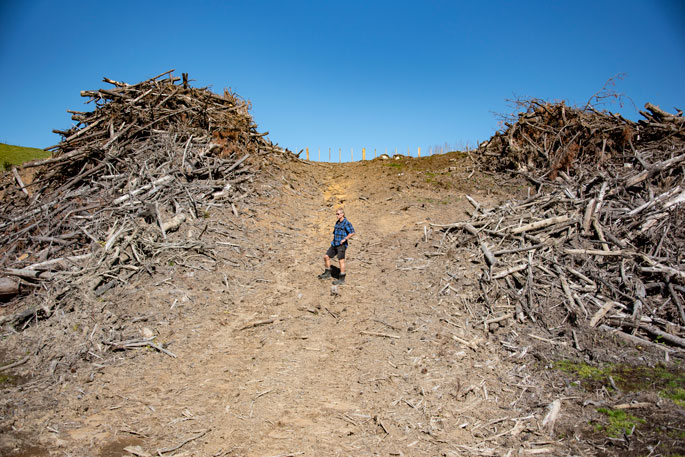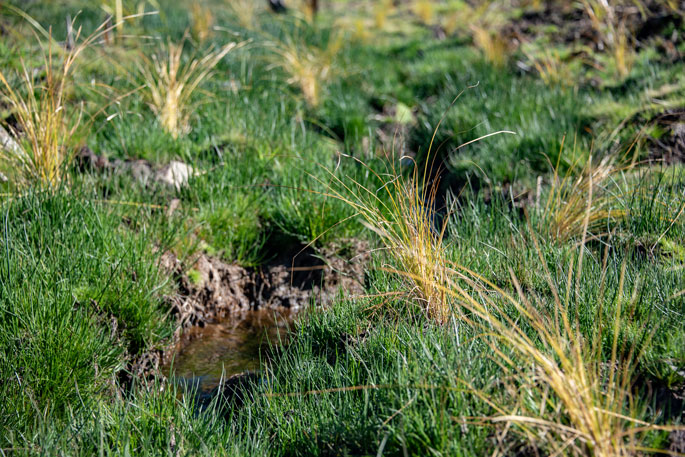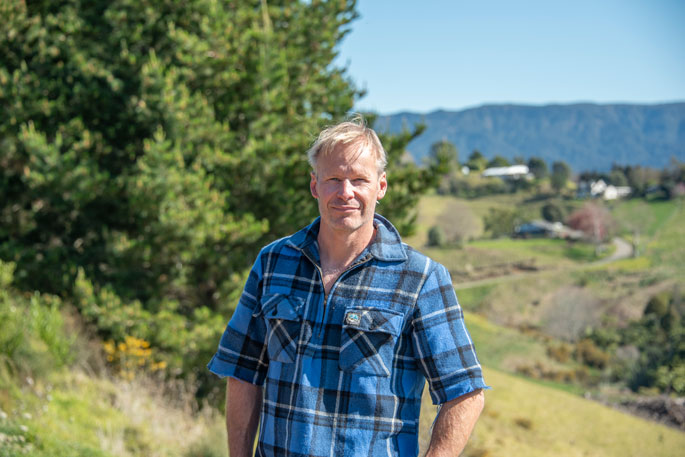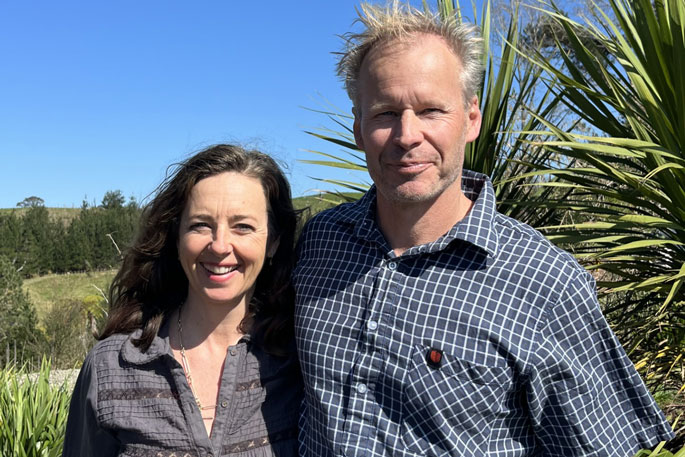Whakamarama residents Brian Rickey and Mel Pendergast have always enjoyed the country. After spending the Covid-19 lockdown in town, they were more than ready to move to the country.
“I’m town raised but I’ve been an arborist all my working life and have always lived the outdoor life and enjoy hunting. Mel was raised on a King Country farm and has a love of animals. She works as an office manager in town,” says Brian.
In 2020 the couple found the perfect property for them and their family. A 19.4ha block of bare land with a rolling to steep contour, a large pond and waterways feeding the Waipapa River.
“We love the interest that a more recreational block offers. This block was once part of a larger dairy farm and has also been a deer farm. It’s an adventure playground for the kids that are at home.”
The land offered room for a sustainable country life with beefies, sheep and chickens. The first priority was building the house, a striking box style home which takes in the far reaching views on all sides.
“We built a large barn, installed rainwater collection from the buildings, hooked up to power, and developed the cattle yards.”
Environmental restoration project
Experienced arborist, Brian has his own company, Full Circle Arboriculture, delivering tree management services, general land management, and recreational developments for councils and private organisations.
Brian has a passion for environmental restoration and could see huge potential for their pine block. Both Mel and Brian believe that it is important to add value to land and leave a legacy to the property.
The property had a 3ha pine block which was still standing apart from six trees that had succumbed during Cyclone Gabrielle.
“The pine stand was a mess but there were still some good trees in there. We decided to strike while the iron was hot and there were still some trees of value to harvest.”
 Brian showing the scale of the pine slash piles that will decompose in four to five years. Photo: Catherine Fry.
Brian showing the scale of the pine slash piles that will decompose in four to five years. Photo: Catherine Fry.
To achieve the project, the mammoth job of clearing the pines and existing vegetation, including noxious weeds.
“It took Bax Contracting around six weeks to extract and harvest the pine. The site looks super tidy, and they spent extra time in order to leave our property looking good. I definitely recommend them.”
The area has around 1km of new fencing. It looks like the site of a natural disaster at the moment, but to the trained eye, every last area has been carefully planned with a view to the future. Brian wants to maximise the clear ground for planting.
Access tracks for future maintenance and for the family to use as a bridle way were included in the new infrastructure.
Waterways and planting
Instead of removing the pine slash, it has been thoughtfully piled up in chosen areas and left to decompose. Brian says pine slash decomposes within four to five years, leaving an enriched area perfect for planting the next stage of trees.
“Being at the top of a catchment and having a pond and two springs merging into a waterway which feeds the Waipapa River, it’s important that we manage that water thoughtfully.”
Minor adjustments were made to enhance the natural flow of the springs. The existing sedges and reeds or “water polishing” plants that were naturally occurring, have immediately started to spread as a result in changes to the hydrology resulting in thousands of free plants! The water margin has been planted with juncus, cyperus, eleocharis and carex.
 Carex grass planted along the water margins. Photo: Catherine Fry.
Carex grass planted along the water margins. Photo: Catherine Fry.
The waterways have clean, clear water with very little sediment. The large pond already has a healthy population of eels, frogs and birdlife.
Flax and cabbage trees are planted along the water lines. Further back, larger growing native trees have been planted.
“We’ve predominantly used mānuka which is a great pioneer plant and promotes biodiversity, such as bees. The rest include akeake, māhoe, putaputawētā, lacebark, and a few tōtara, kahikatea and tītoki”
The planting was a huge effort by family, friends and Brian’s Full Circle team, planting 8000 trees in three days.
Pest control is now important with pūkeko, rabbits and hares a risk to the small plants.
“Hares browse and two eat the equivalent of what a fully grown sheep eats in a day. Pūkeko are worse as they pull the plants out looking for bugs and don’t eat the plant, leaving it to die.
“I often take my shotgun on evening walks as they are a real threat to the success of the planting.”
Funding
Brian and Mel put the money from the sale of the usable pine into the restoration project.
Funding was also secured through a partnership with Toi Moana Bay of Plenty Regional Council. Together with their land management officer, they are implementing an environmental programme to help protect and restore biodiversity, conserve soil and improve water quality.
 Owner of Full Circle Arboriculture, Brian Rickey. Photo: Catherine Fry.
Owner of Full Circle Arboriculture, Brian Rickey. Photo: Catherine Fry.



0 comments
Leave a Comment
You must be logged in to make a comment.